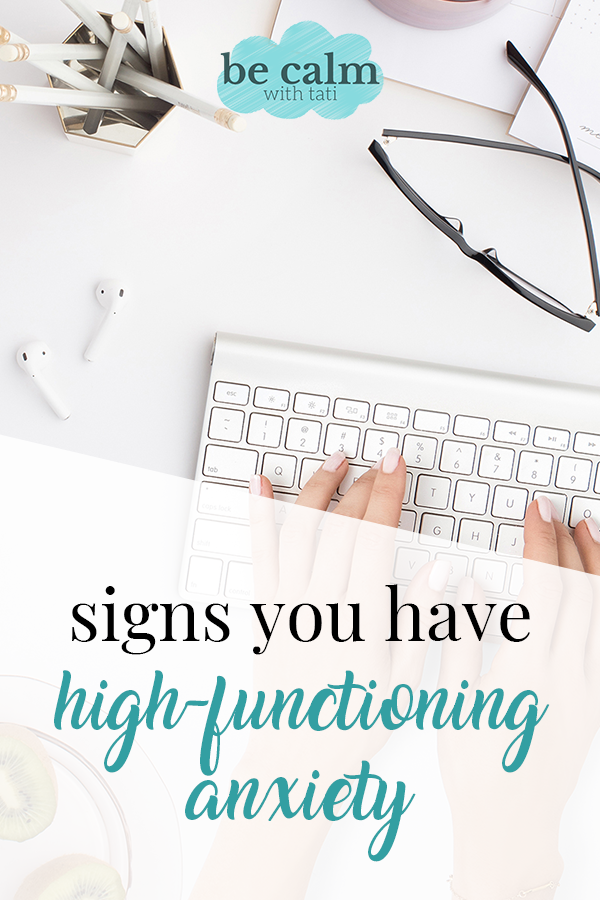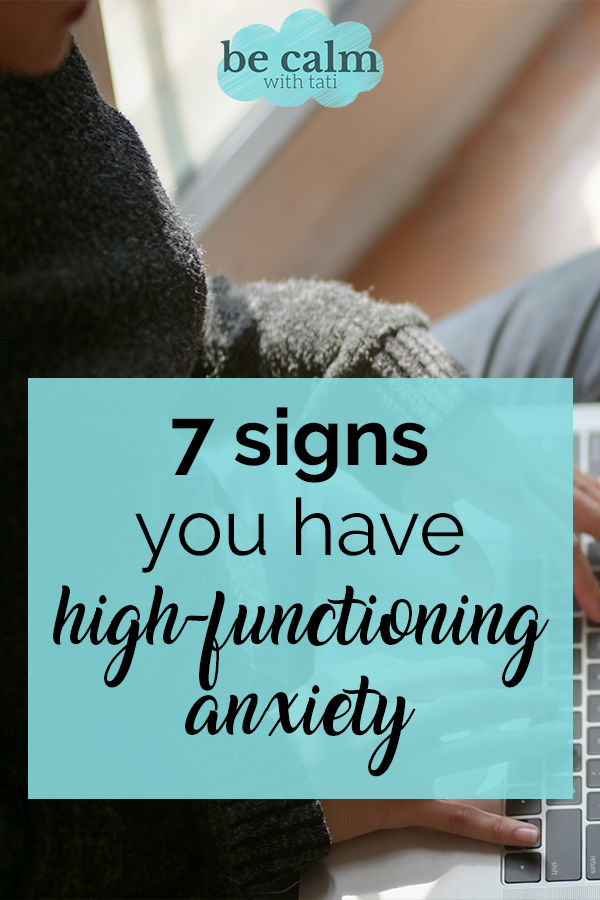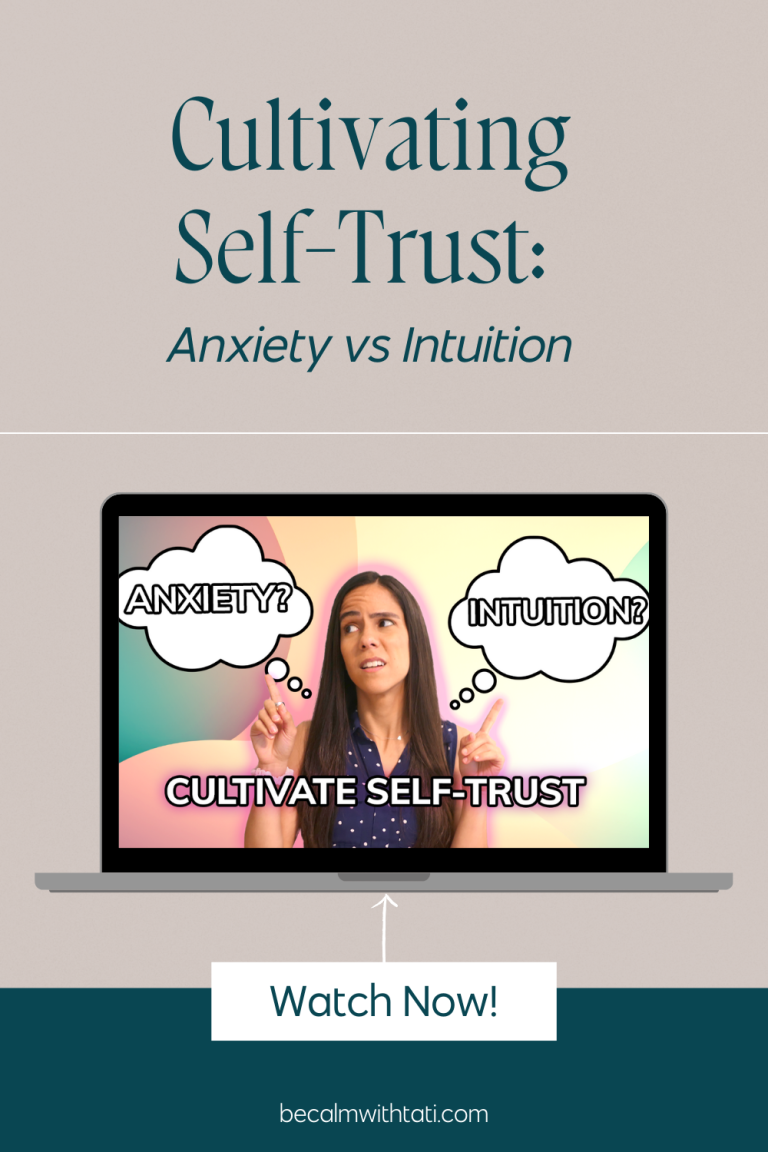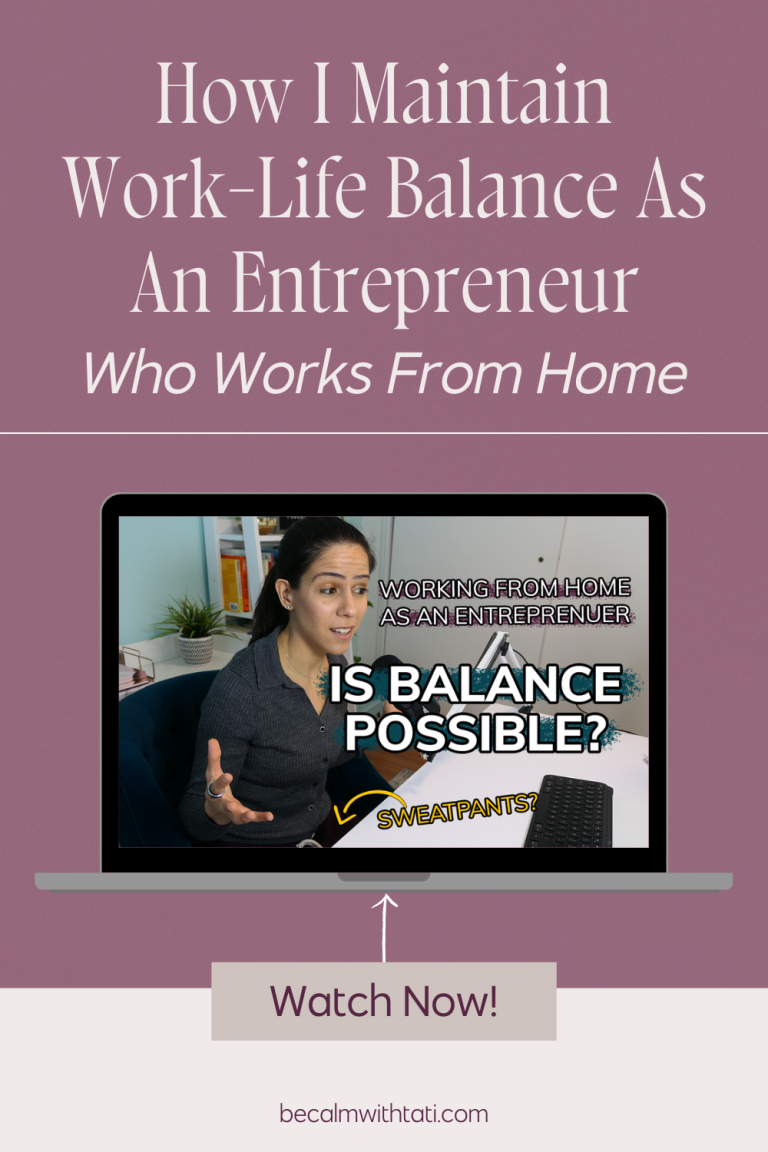Imagine you have to make a decision regarding whether or not to respond to an email. The person responded to your email by saying “thank you so much for the quick response!” You read the email and then you go back-and-forth in your head:
“Should I respond and say ‘you’re welcome’ or ‘no problem!’ or ‘don’t mention it’?”
“What if they think I’m rude for not responding?”
“Would it be excessive and unnecessary to send a response?”
“Are they even going to notice if I don’t respond?”
“Will it look like I don’t care if I don’t respond?”
And this all happens within a period of 30 seconds of you receiving this email. It’s honestly exhausting and just one example of high-functioning anxiety: when you appear successful to others on the outside, while inside there is a storm of overthinking, self-doubt, and worrying.

What Does High-Functioning Mean?
“High-functioning” anxiety is a strange concept, right? You probably don’t think of yourself in terms of high or low functioning. The phrase high-functioning refers to how you function independently in your day-to-day life. Are you able to hold a job? Do you avoid certain social activities or anything else because of anxiety? Do you perform well at school? Can you form healthy relationships? Can you care for yourself and your daily nutrition, hygiene, and financial needs?
High-functioning anxiety is not a mental disorder or diagnosis. It refers to individuals who experience anxiety, but are highly successful and often overachievers. Their anxiety propels them forward into action instead of holding them back.
Anxiety itself is not a mental disorder. Many people hear anxiety and they automatically have an association with panic attacks, significant fear and avoidance, and visible nervousness. These symptoms can be a result of anxiety, but anxiety is also an emotion, just like sadness, that occurs on a spectrum.
Humans are also not that simple. Moods and emotions vary from day to day and moment to moment. You might experience some anxiety because a loved one is in the hospital or because you have an interview tomorrow, and these are both completely normal responses.

Do You Have An Anxiety Disorder?
I created an entire post about the 6 types of anxiety disorders here. You can only be diagnosed by a licensed mental health professional, but this article can serve as a starting point to understand yourself better. If in doubt, please contact your physician or seek out therapy. It’s courageous to ask for help and invest in your mental health.
If you are experiencing panic attacks, daily worrying, always thinking of the worst-case scenario, irritability, feeling keyed up or on edge, and/or lacking motivation then it may be time to seek out a licensed mental health professional to get the help and support you need.

7 Signs Of High-Functioning Anxiety
Do you overthink things a lot? Are you a high-achieving perfectionist who has difficulty saying no, always needs to be busy, has impossibly high standards, and appears put together, calm, and successful to others? And yet you are struggling with self-doubt, worrying, and over-analyzing things on the inside?
You might have high-functioning anxiety. Keep reading for 7 signs of high-functioning anxiety.
1. You Appear Successful And Calm To Others On The Outside
This is where the high-functioning comes in. People with high-functioning anxiety tend to be high achievers who are ambitious. As a result, you appear successful and calm on the outside because you strive to do well. But on the inside…
2. You Have Very High Expectations
You tend to put a lot of pressure on yourself to do very well. Mediocre isn’t enough, so you are always pushing to do better. The problem is that better isn’t good enough. Because your expectations are so high, you are stuck on the treadmill of never reaching the status of feeling fully satisfied with your work.
3. You Always Need To Be Busy
You are constantly doing work because you have such high expectations. Another reason for always needing to be busy could be a result of the anxiety you feel. Sometimes overworking can be a form of avoiding uncomfortable emotions and physical sensations like anxiety.
In addition, you may have difficulty relaxing because of the pressure you put on yourself to be busy and your desire to want to accomplish more.
4. You Have Difficulty Saying No And Asking For Help
It’s hard for you to say no to people and opportunities because you fear disappointing others or missing out on promising opportunities. As a result, you tend to overbook yourself or bail on plans at the last minute.
You might also have difficulty asking for help because you don’t want to appear weak or incompetent. It’s scary to think that you might look like you don’t have it all together, so you avoid letting people in on your struggles.
5. You Overthink And Over-analyze Things
Overthinking is your best friend because you need to make the “right” decision or do things the “right” way. You might be endlessly googling things to find the correct information, or making pro’s and con’s lists to weigh out every possible scenario.
6. You Fear Failure And Judgment
The reason why you do a lot of the previously mentioned behaviors is because you fear failing and being judged by others. If you’re doing more work and always busy then it’s harder to fail because at least you’re moving forward, right?
These fears might drive many of your behaviors because you don’t want to appear like you don’t have it all together.
7. You Think Of The Worst-Case Scenario
Your anxiety propels you forward into action because you fear what would happen if you didn’t do anything… and it’s often the worst-case scenario. You tend to catastrophize things and make them bigger in your head because your fear takes control.

Treatment For High-Functioning Anxiety
Does it sound like you might have high-functioning anxiety? I know you might have difficulty asking for help (and that’s okay, because asking for help is hard) but it is so important that you do! That’s the only way you will feel better and finally get out of the trap of the ridiculous pressure you put on yourself!
There are different treatment options depending on where you are starting.
Therapy
Going to therapy is a good option if you are experiencing significant anxiety symptoms (panic attacks, constant worrying, difficulty focusing, feeling on edge, irritability) that are impacting your day-to-day functioning such as your ability to work, hold a job, or go to school.
Therapy is also a good option if you have a history of trauma and would like to explore and process your past and how it influences your present day functioning.
Do you need therapy? Learn more here.
High-Functioning Anxiety Coaching
Coaching helps you move from a level of being able to set and achieve goals but feeling stuck to:
- Achieving your goals
- Getting out of your comfort zone
- Getting unstuck
- Maximizing your potential
Coaches do not focus on processing and exploring your past in the same way that you would in therapy. Instead, a coach will work with you to identify a plan to achieve and accomplish future goals.
Coaching may be right for you if you are looking to level up in your life. This could be you if you are already coping well when it comes to work, school, relationships, and your daily functioning. Keep in mind that nobody is perfect. Everybody experiences stress, some levels of anxiety, and daily changes in mood- this is called being human and having emotions.
Coaching is for you if you aren’t in crisis and you can cope with daily stress that comes up. You are ready to crush your goals, be held accountable, and create a life you love. Or maybe you’re feeling stuck and you know you want to move forward but you aren’t sure where to start.
Different coaches have different approaches (rhyme not intended :)). I specialize in coaching individuals with high-functioning anxiety. My approach when it comes to coaching involves helping high-performing professionals overcome burnout, always saying yes, and really getting to the root of their fears to create a balanced life focused on the things that matter most to them.
Does this sound like it might be you? Learn more about my coaching services here!
Sources:
















3 Comments
Thank you for your kind advice. I have started today and will schedule in time in my diary to complete Days 2 and 3. I look foward to completing this mini course and then assess my progress over the following weeks.
You’re welcome, Patrick! I’d love to hear how you find the course!
Thanks Tati for your professional advice.
Will keep in touch with you
Much appreciated.
Sonja Knoetze